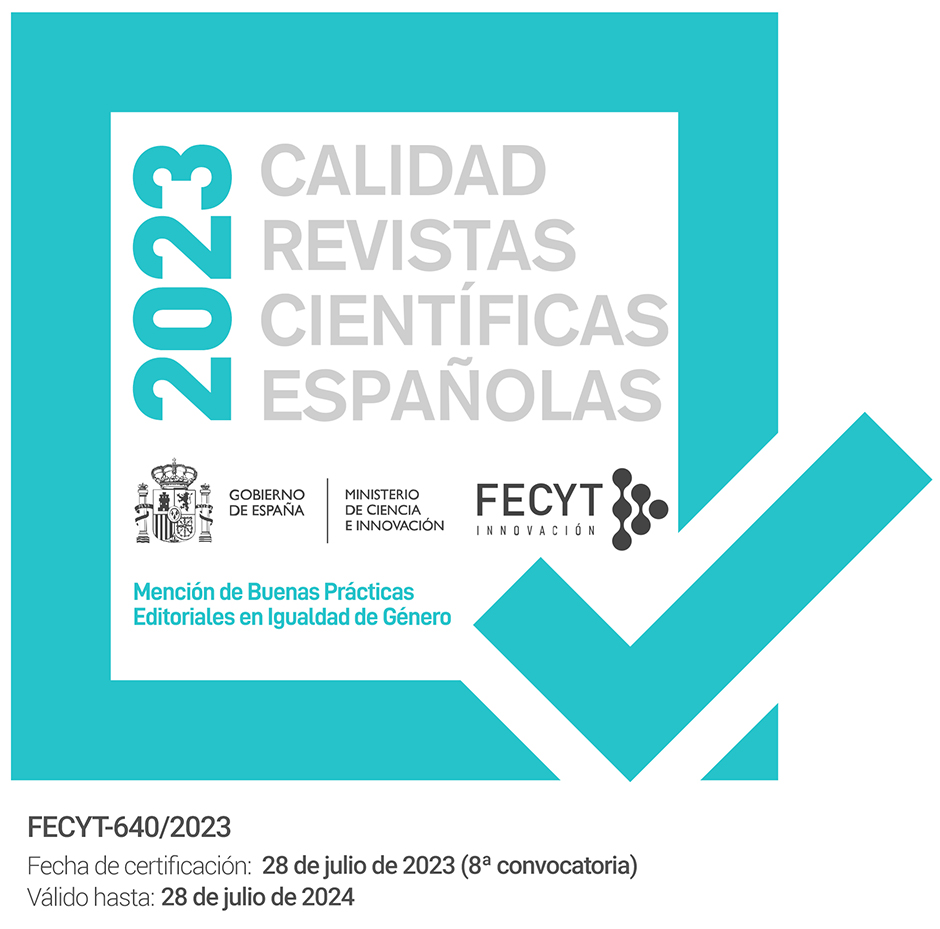Adherence to pharmacological treatment in hypertensive patients treated at a public healthcare center
Keywords:
Patient Compliance; Hypertension; Pharmaceutical ServicesAbstract
Introduction: The adherence to a prolonged treatment is defined as the degree the behavior of a person corresponds to the recommendations prescribed by a healthcare provider.
Objective: to determine the adherence to the pharmacological treatment by patients with high blood pressure.
Methodology: It was carried out a descriptive, observational, cross-sectional study, the sampling was non-probabilistic. The people interviewed were high blood pressure patients who received medications issued by the external pharmacy at the San Lorenzo city General Hospital. The research started on May and ended in July 2018. It was used a questionnaire adapted to the Morisky-Green test. The non-adherence reason was evaluated by means of open questions.
Results: 334 patients participated in the study. 84% of them were female and the average age was 61 years old. Average evolution time of the disease was 15 years. 54% had finished primary school, 54% were living as a couple and 33% of the patients suffered type 2 diabetes mellitus as a comorbidity. 41,92% of the patients adhered to the pharmacological treatment. The most frequent causes of non-adherence were forgetfulness and polymedication. At the same time, it was determined that the adherence to the treatment shows no relation to gender neither to the evolution time of the disease.
Conclusions: Management of hypertension is a challenge to the healthcare system at all levels of attention. It requires a comprehensive approach to the patient that presents multiple associated health risk factors.
Downloads
References
OMS. Organización Mundial de la Salud. Información general sobre la hipertensión en el mundo. Día mundial de la Salud 2013. Documento N (WHO/DCO/WHD/. [Internet]. (2013). [Consultado 02 Feb.2020]. Disponible en: http://apps.who.int/iris/bitstream/10665/87679/1/WHO_DCO_WHD_2013.2_spa.pdf?ua=1.
OMS. Organización Mundial de la Salud. Informe sobre la situación mundial de las enfermedades no transmisibles 2010. Ginebra, Organización Mundial de la Salud. (2011).
MSPyBS. Ministerio de Salud Pública y Bienestar Social. Organización Panamericana de la Salud. Primera Encuesta Nacional de Factores de Riesgo. [Internet]. (2011). [Consultado 04 Feb. 2020]. Disponible en: https://www.who.int/ncds/surveillance/steps/2011_STEPS_Paraguay_leaflet.pdf
WHO. World Health Organisation. Sabaté E. Adherence to long-term therapies: evidence for action. Switzerland: (2003).
Ibrahim AR, Eliasson L, Apperley JF, Milojkovic D, Bua M, Szydlo R, et al. Poor adherence is the main reason for loss of 257 Ars Pharm. 2018; 59(4): 251-258. DOI: https://doi.org/10.30827/ars.v59i4.7357
Darkow T, Henk HJ, Thomas SK, Feng W, Baladi JF, Goldberg GA, et al. Treatment interruptions and non-adherence with imatinib and associated healthcare costs: a retrospective analysis among managed care patients with chronic myelogenous leukaemia. Pharmacoeconomics. 2007;25(6):481–96. doi: 10.2165/00019053-200725060-00004.
Sokol MC, McGuigan KA, Verbrugge RR, Epstein RS. Impact of medication adherence on hospitalization risk and healthcare cost. Med Care. 2005;43(6):521–30. doi: 10.1097/01.mlr.0000163641.86870.af.
Simpson SH. A meta-analysis of the association between adherence to drug therapy and mortality. BMJ. 2006;333(7557):15. doi: https://doi.org/10.1136/bmj.38875.675486.55
Jackevicius CA, Li P, Tu JV. Prevalence, predictors, and outcomes of primary nonadherence after acute myocardial infarction. Circulation. 2008;117(8):1028–36. doi: 10.1161/CIRCULATIONAHA.107.706820.
Carhuallanqui R, Diestra-Cabrera G, Tang-Herrera J, Málaga G. Adherencia al tratamiento farmacológico en pacientes hipertensos atendidos en un hospital general. Rev Med Hered [Internet]. 2010 Oct [citado 2021 Sep 24] ; 21( 4 ): 197-201. Disponible en: http://www.scielo.org.pe/scielo.php?script=sci_arttext&pid=S1018-130X2010000400005&lng=es.
Málaga G, Sánchez-Mejía A. Medicina basada en evidencia: Aportes a la práctica médica actual y dificultades para su implementación. Rev Med Hered 2009; 20 (2): 103-109.
Cresswell KM, Fernando B, McKinstry B, Sheikh A. Adverse drug events in the elderly. Br Med Bull. 2007; 83 (1) :259-274. DOI: 10.1093/bmb/ldm016
Beglinger C. Ética en relación con la terapia con medicamentos en los ancianos. Cavar Dis. 2008; 26 (1) :28-31
Murillo MD, Fernández-Llimós F, Tuneu I, Valls L. Guía de seguimiento farmacoterapéutico sobre diabetes. [Internet].2013. [Consultado 23 nov. 2019]. Disponible en: https://www.diariofarma.com/wp-content/uploads/2015/02/GuiaSFT_Diabetes.pdf
Flack JM, Novikov SV, Ferrario CM. Benefits of adherence to antihypertensive drug therapy. European Heart Journal. 1996; 17 Suppl A:16-20. DOI: 10.1093/eurheartj/17.suppl_a.16
Caro JJ, et al. Effect of initial drug choice on persistence with antihypertensive therapy: the importance of actual practice data. Canadian Medical Association Journal. 1999;160(1):41-46.
Jadad AR, Cabrera A, Martos F, Smith R, Lyons RF. (2010). Why Multiple Chronic Diseases? Why now? What is going on around the world?. When people live with multiple chronic diseases: a collaborative approach to an emerging global challenge. Granada: Escuela Andaluza de Salud Pública; Disponible en: http://www.opimec.org/equipos/whenpeople-live-with-multiple-chronic-diseases
Salinas Judith, Vio F. Programas de salud y nutrición sin política de estado: el caso de la promoción de salud escolar en Chile. Rev. chil. nutr. [Internet]. 2011 Jun [citado 2021 Sep 25] ; 38( 2 ): 100-116. Disponible en: http://www.scielo.cl/scielo.php?script=sci_arttext&pid=S0717-75182011000200001&lng=es. http://dx.doi.org/10.4067/S0717-75182011000200001.
Saounatsou M, et al. The influence of the hypertensive patient's education in compliance with their medication. Public Health Nursing. 2001;18(6):436-442. DOI: 10.1046/j.1525-1446.2001.00436.x
Bone LR, et al. Community health survey in an urban African-American neighborhood: distribution and correlates of elevated blood pressure. Ethnicity & Disease. 2000; 10(1):87-95.
UK Prospective Diabetes Study Group. Tight blood pressure control and risk of macrovascular and microvascular complications in type 2 diabetes: (UKPDS 38). Rev. Bristish Medical Journal. 1998; 317(7160), 703-713.
Wright JM, Lee C, Chambers GK. (2000). Real-world effectiveness of antihypertensive drugs. Canadian Medical Association Journal. 2000; 162(2):190-191.
Bloom BS. (1998). Continuation of initial antihypertensive medication after 1 year of therapy. Clinical Therapeutics. 1998; 20(4):671-681. doi: 10.1016/s0149-2918(98)80130-6.
Ingaramo RA, Vita N, Bendersky M, et al. Estudio nacional sobre aherencia al tratamiento. Rev Fed Argentina Cardiol. 2005; 34:104-111.
Quintana SC, Fernández-Britto JE. Adherencia terapéutica farmacológica anti-hipertensiva en adultos de atención primaria y factores relacionados con su incumplimiento. Rev Cubana Invest Bioméd [Internet]. 2009; 16: 28(2) Disponible en: http://scielo.sld.cu/scielo.php?script=sci_arttext&pid=S0864-03002009000200007
Arana Morales G, Cilliani Aguirre B, Abanto D. Cumplimiento del tratamiento farmacológico y control de la presión arterial en pacientes del programa de hipertensión: Hospital Víctor Lazarte Echegaray - EsSALUD, Trujillo. Rev Med Hered [Internet]. 2001 [citado 2020 Sep 24] ; 12( 4 ): 120-126. Disponible en: http://www.scielo.org.pe/scielo.php?script=sci_arttext&pid=S1018-130X2001000400003&lng=es.
Abegaz TM, Shehab A, Gebreyohannes EA, Bhagavathula AS, Elnour AA. Nonadherence to antihypertensive drugs. A systematic review and meta-analysis. Medicine. 2017 enero; 96(4):e5641. doi: 10.1097/MD.0000000000005641.
Sánchez, RA, Ayala, M, Baglivo, H, Velázquez, C, Burlando, G, Kolmann, O, et al. Latin American guidelines on Hypertension. Latin American Expert Group. J Hypertens. 2009; 27(5):905-22. doi: 10.1097/HJH.0b013e32832aa6d2.
Maidana GM, Lugo GB, Vera Z, Pérez S, Mastroianni PC. Evaluación de un programa de Atención Farmacéutica en pacientes con Diabetes Mellitus Tipo 2. Pharm Care Esp. 2016; 18(1): 3-15.
Holguín, L, Correa, D, Arrivillaga-Quintero, M, Varela, M.T, Cáceres D. Adherencia al tratamiento de hipertensión arterial: efectividad de un programa de intervención biopsicosocial. Universitas Psychologica.2006; 5: 535-548
Downloads
Published
How to Cite
Issue
Section
License
Copyright (c) 2021 Gladys Mabel Maidana, Lourdes Raquel Samaniego Silva, Zully Vera, Patricia Acosta, Nilsa Lial Safi, Gladys Beatriz Lugo

This work is licensed under a Creative Commons Attribution-NonCommercial-ShareAlike 4.0 International License.
La revista Pharmaceutical Care España se publica bajo una licencia «Creative Commons, Reconocimiento, No Comercial y Compartir Igual 4.0 Internacional» (CC BY-NC-SA 4.0)», que permite a otros compartir el trabajo con un reconocimiento de la autoría del trabajo y la publicación inicial en esta revista (con excepción de los usos comerciales).
Los autores que publican en esta revista están de acuerdo con los siguientes términos:a) Los autores conservan los derechos de autor (derechos morales) y garantizan a la revista el derecho de ser el primer soporte documental publicado del trabajo.
b) Se permite y anima a los autores a difundir la versión del trabajo revisado por pares y aceptada para su publicación (por ejemplo, en repositorios institucionales o temáticos), recomendando hacerlo con la versión final del editor “pdf”, “html” o “xml”).









